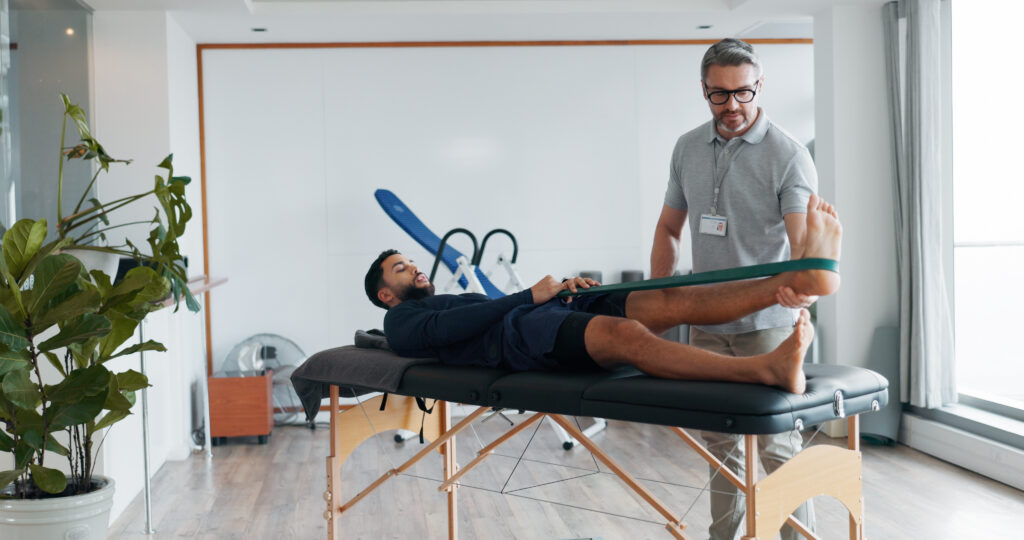
Motorcycle riders are 30 times more likely to suffer severe or fatal injuries in a road traffic accident than car drivers.
Some of the main causes of motorcycle accidents include:
Impaired driving
Intoxicated riders lack the sensory functions to keep other road users safe.
Drinking or using drugs while riding a motorbike causes slower response times, poor decision-making skills and reckless riding.
Lane splitting
Lane splitting on motorcycles is legal in the UK. It involves navigating between lanes of stationary or slow-moving traffic.
Fast-moving motorcycles riding between lanes run the risk of hitting other vehicles which may be changing lanes, making turns or passing and emerging from junctions.
The rider must also be aware that pedestrians may be crossing between stationary vehicles.
Lack of rider visibility
Rules 86 and 87 of the Highway Code – Rules for Motorcyclists, encourages riders to help themselves to be seen. This includes wearing a light or brightly coloured helmet and fluorescent or reflective clothing and strips. Riders should also have their dipped headlights on to make themselves more conspicuous.
Opening car doors
Motorcycles can be hard to see in blind spots and behind vehicles, especially when the rider moves at a fast speed. Riders moving between parked vehicles risk running into opening doors.
Inclement weather conditions
Heavy rain, fog, strong winds, ice and snow can make riding conditions particularly dangerous. These weather conditions not only affect riding comfort, but they also impact on visibility and traction. Excessive moisture on the road reduces traction of tires and can lead to a fatal motorcycle crash. Riders are encouraged to check weather conditions before heading out onto public roads.
Lack of motorcycle riding experience
New motorcyclists lacking adequate experience can soon cause fatalities from motorcycle accidents. New riders should ensure that they have received all the relevant training and that they understand the Highway Code.
Motorcyclists must have Compulsory Basic Training (CBT) before they can ride a moped or motorcycle up to 125cc on public roads. For a full motorcycle licence, you must pass the motorcycle theory test and pass the practical tests which are split into two modules.
Motorcycle collisions can cause severe injuries and fatalities
Accidents involving motorcycles can have devastating effects on the rider and other road users, causing severe and fatal injuries.
UK law requires motorcyclists to wear helmets while riding. Falling off and hitting the ground can cause brain bleeds, spinal cord injuries, traumatic skull fractures and other broken bones to the body.
Concussions and brain injuries
The most common head injury in motorcycle accidents is brain damage.
Brain damage can be defined as destruction or deterioration of brain cells which leads to impairment of various brain functions. This, in turn, can cause symptoms like personality changes, severe headaches, memory problems, depression, speech problems and seizures.
Spinal cord injury
Spinal cord injury is damage to a part of the spinal cord which can result from trauma such as a road traffic accident. The injury interrupts messages between the brain and the rest of the body causing loss of feeling and partial or full loss of movement in parts of the body.
Broken bones
This can include broken arms, shoulders, backs, necks, hips, legs, knees and ankles.
In addition, the ligaments and tendons between the bones can snap and tear. Tendons connect muscle to bone which allows movement and ligaments connect bones to bones which stabilise joints.
What should I do if I have had a motorcycle accident?
- Seek medical attention immediately
- Take photographs of your injuries and damage to your motorcycle and any other vehicle involved
- Report the accident to the police
- Obtain details of the other party involved and any witnesses
- Notify your insurance company
- Contact an experienced personal injury solicitor
How much compensation am I likely to receive?
There are many variables which determine the level of damages you are likely to receive, these include:
- The type of injuries suffered and the extent of the injuries
- Pain and suffering
- Medical expenses
- Lost wages and other financial losses
- Degree of negligence on behalf of the other party
- Willingness on both sides to negotiate
Every case is different so compensation for seemingly similar situations can vary hugely depending on all these factors.
An experienced solicitor should be able to carefully take all the factors into consideration and obtain all the necessary evidence to ensure that all of your losses are accounted for and that you receive the compensation that you are entitled to.
How we can help...
If you or a loved one has had a road traffic accident, and you would like to speak to one of our experienced solicitors here at Timms then please contact us on 0800 011 6666, or email legal@timms-law.com
For more information, visit our Personal Injury webpage here.




